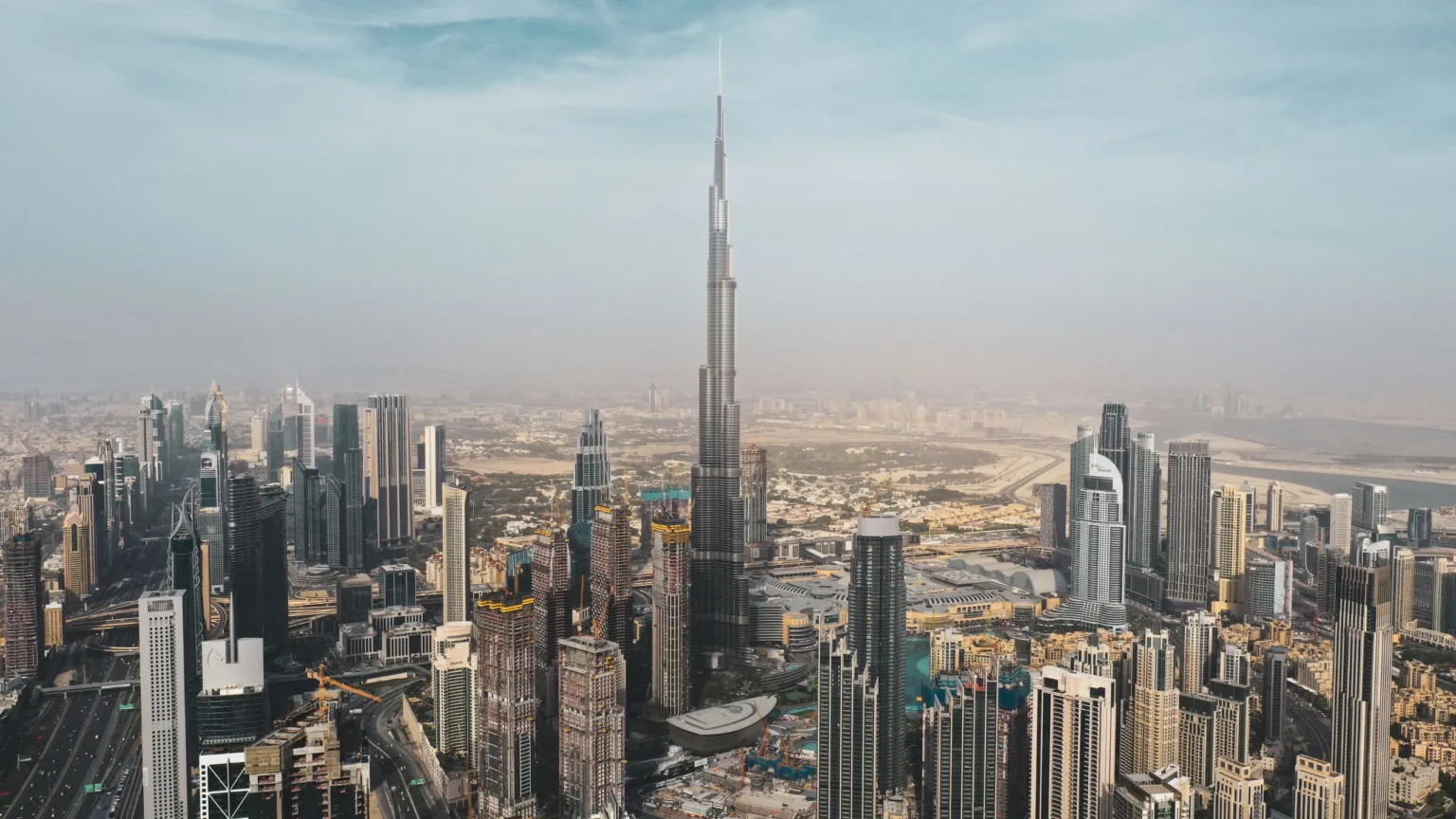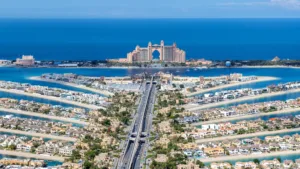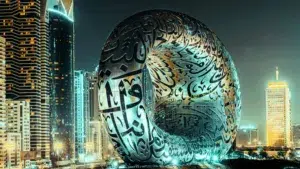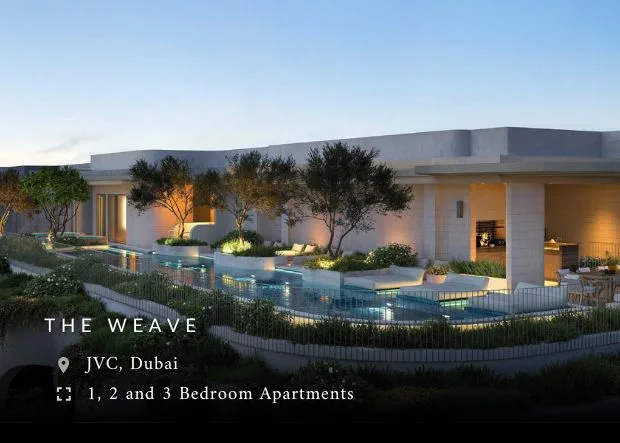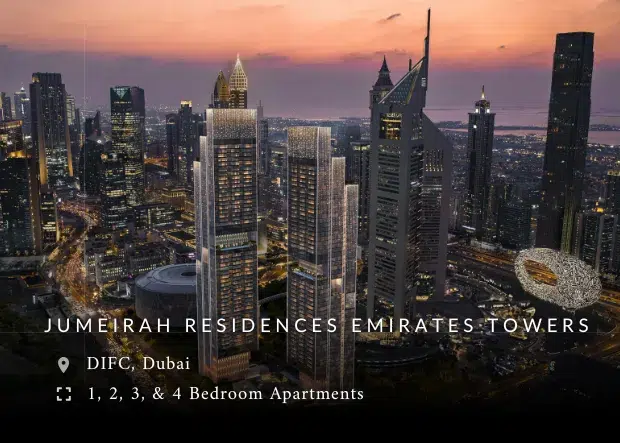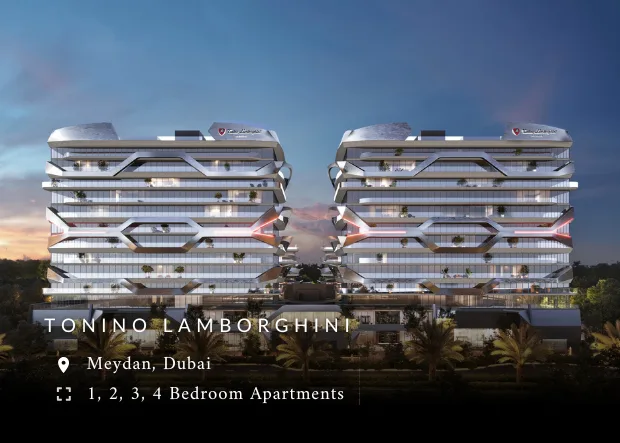Introduction
The Dubai real estate market has emerged as a beacon of growth, capturing the attention of investors and homebuyers alike. With its dynamic economic landscape, Dubai has positioned itself as a leading global player in the real estate sector. This vibrant market is characterized by a remarkable surge in property values and increased transaction volumes, highlighting the city’s allure as a premier destination for both business and tourism. Recent reports indicate a notable uptick in demand across diverse property segments, fueled by the city’s extensive infrastructure developments and a burgeoning luxury real estate sector.
Factors such as favorable mortgage rates and an influx of expatriates seeking residency options have rejuvenated the residential market, while commercial properties benefit from the evolving start-up ecosystem and foreign investment influx. The luxury segment, in particular, has gained traction among high-net-worth individuals drawn to Dubai’s premium offerings. Additionally, supportive government initiatives aimed at streamlining foreign ownership have further enhanced the market’s appeal.
This article delves into the multifaceted growth trends of the Dubai real estate market, providing stakeholders with insights into what drives this vibrant sector. By exploring these emerging patterns, readers can better understand the implications for investment opportunities and future developments within this thriving market.
Overview of Dubai Real Estate Market Growth Trends
The Dubai real estate market has experienced significant growth in recent years, characterized by a robust increase in property values and transaction volumes. According to recent statistics, the market has seen a surge in demand across various segments, reflecting the city’s attractiveness as a global hub for business and tourism. Key developments, including the ongoing infrastructure projects and the rise of new luxury developments, play a vital role in shaping these growth trends. Notably, the residential sector has enjoyed a revival, driven by favorable mortgage rates and an influx of expatriates seeking long-term residency options.
The commercial real estate sector is also witnessing substantial growth, bolstered by the burgeoning start-up ecosystem and foreign investments. Additionally, the luxury real estate segment has thrived, with high-net-worth individuals flocking to Dubai for its premium offerings. This growth trajectory is further supported by key governmental policies designed to facilitate investment and simplify property ownership for foreign buyers. As a result, the Dubai real estate market is not only rebounding but evolving, positioning itself favorably on the global stage. By examining these trends, stakeholders can gain valuable insights into the future dynamics of this flourishing market.
Key Drivers Behind Dubai Real Estate Market Growth
The Dubai real estate market has experienced significant growth, driven by several key factors that create a robust investment environment. One of the primary drivers is government policies aimed at enhancing foreign investment. Initiatives such as the introduction of long-term visas for expatriates and 100% foreign ownership of businesses have increased the appeal of Dubai as a residential and commercial hub.
Economic diversification is another crucial factor. The government’s commitment to reducing reliance on oil has led to an expansion in various sectors, such as tourism, technology, and trade, creating a booming demand for real estate. The continuous infrastructural development, including transportation networks and smart city initiatives, further attracts both investors and residents.
Additionally, the favorable regulatory framework, including transparent property laws and a relatively low tax environment, encourages local and international investors to engage actively in the market. The recent influx of high-net-worth individuals seeking luxury residences in Dubai underlines how global wealth trends are crucial in shaping demand.
The synergy between these dynamics establishes a strong foundation for sustained growth, positioning Dubai as a competitive player in the global real estate market. Overall, understanding these key drivers provides valuable insights into the current and future trajectory of Dubai’s real estate landscape.
Comparison with Global Real Estate Markets
The Dubai real estate market has garnered significant attention, especially when compared to other major global cities such as London, New York, and Singapore. In recent years, Dubai has emerged as a competitive player in the international real estate landscape, experiencing remarkable growth in both residential and commercial sectors. Unlike traditional markets that often exhibit slow recovery patterns, Dubai’s real estate sector has demonstrated resilience and adaptability, largely due to an influx of foreign investment.
Key indicators reveal that property prices in Dubai have shown stability, even as some global cities face fluctuations. Factors like government initiatives aimed at attracting international buyers and the city’s strategic geographic location have made Dubai appealing for investors. In contrast, cities like London typically confront challenges related to regulatory hurdles and high taxation that can hinder growth. Moreover, while New York’s market often sees high demand, the cost of entry can be prohibitively expensive for many investors.
Furthermore, Singapore’s real estate landscape is characterized by strict regulations that can affect investment levels. In this context, Dubai offers a more favorable environment, spurring robust market activity. As Dubai continues to innovate and expand, its comparative advantages stand to position it as a leading global real estate market, making it a focal point for investors seeking diverse opportunities beyond traditional urban centers.
Sector-Wise Breakdown of Dubai Real Estate Market Growth
The Dubai real estate market exhibits diverse growth across various sectors, each displaying distinctive trends and characteristics. In the residential segment, demand continues to surge, driven by both domestic and international buyers attracted by the city’s luxurious lifestyle and favorable investment conditions. Properties in vibrant neighborhoods often see appreciation due to infrastructural development and high-quality amenities.
Commercial real estate has also experienced notable growth, particularly in office spaces and retail properties. This sector has benefited from the UAE’s strategic location as a business hub, fostering increased demand for commercial leases. The rise of e-commerce has additionally influenced retail real estate, prompting a shift toward mixed-use developments to accommodate changing consumer behaviors.
Meanwhile, the luxury real estate market in Dubai has remained resilient and robust, often showcasing remarkable new developments that attract high-net-worth individuals. Iconic skyscrapers and opulent villas in prime locations continue to command remarkable prices, reflecting the city’s status as a global luxury destination.
In conclusion, the sector-wise analysis of Dubai’s real estate market reveals robust growth trends across residential, commercial, and luxury segments. The interplay of local demand, global investment, and strategic initiatives plays a crucial role in shaping the market’s dynamic landscape. Understanding these segments can provide investors and stakeholders with valuable insights into potential opportunities within Dubai’s evolving real estate scene.
Impact of Expo 2020 and Vision 2040 on Market Growth
The Expo 2020 event and the strategic Vision 2040 plan have significantly influenced the trajectory of the Dubai real estate market. Expo 2020 attracted millions of visitors and investment opportunities, showcasing Dubai as a global hub for tourism and business. This influx not only spurred immediate demand for commercial and residential properties but also elevated investor confidence in the market’s stability.
Moreover, Vision 2040 aims to transform Dubai into a sustainable and environmentally friendly city, aligning urban development with global ecological standards. This initiative fosters innovative projects, enhancing living standards and promoting real estate developments that cater to future needs.
Post-Expo, there has been a notable uptick in market activities, with various sectors witnessing heightened interest. Residential properties, in particular, have benefited from favorable policies and increased migration, driven by enhanced lifestyle offerings showcased during the Expo. Coupled with the government’s focus on sustainable cities as outlined in Vision 2040, the real estate market is poised for continued expansion.
The integration of these large-scale initiatives highlights a commitment to creating a resilient economy and robust real estate sector in Dubai. As Expo 2020 leaves a lasting legacy, these plans ensure sustained growth, positioning Dubai as a prime location for both residents and investors in the years to come.
Future Projections for Dubai Real Estate Market Growth
As Dubai continues to evolve as a global hub for tourism and commerce, experts predict a robust trajectory for its real estate market in the coming years. Analysts forecast that the combination of ongoing government initiatives and rising foreign investment will drive sustained growth. The robust diversification of the economy, particularly in sectors like tourism and technology, is expected to stimulate demand for both residential and commercial properties.
Upcoming infrastructure developments, including enhanced transportation networks and smart city initiatives, are also anticipated to elevate property values throughout the emirate. Additionally, the long-term vision outlined in Dubai’s Vision 2040 plan encompasses strategies that focus on sustainability and livability, making the city increasingly attractive to both residents and investors.
Emerging trends suggest a shift towards eco-friendly buildings and smart homes, reflecting a growing awareness of environmental sustainability among buyers. Luxury real estate is expected to remain a strong sector, with continued interest from affluent investors looking for premium properties.
Furthermore, as the global economy rebounds post-pandemic, the potential for increased expatriate settlement may contribute to an upswing in the rental market. Together, these factors create a positive outlook for the Dubai real estate market, setting the stage for continued expansion and investment opportunities in the years ahead.
Conclusion
In conclusion, the Dubai real estate market stands as a testament to remarkable growth and resilience, driven by a confluence of factors that enhance its appeal to both investors and homeowners. The steady rise in property values, coupled with increased transaction volumes, underscores a thriving environment for all types of real estate transactions. The resurgence of the residential sector, propelled by favorable mortgage conditions and an influx of expatriate residents, reflects the city’s commitment to accommodating a diverse population.
Moreover, the commercial real estate market has gained momentum, thanks to a supportive start-up ecosystem and attractive foreign investments that bolster economic growth. The luxury real estate segment continues to attract high-net-worth individuals, drawn by Dubai’s opulence and lifestyle offerings. Policymakers play a crucial role in this narrative, ensuring that government initiatives foster a welcoming atmosphere for international buyers, further enhancing market dynamics.
Overall, understanding these trends equips stakeholders—ranging from real estate investors to potential homebuyers—with the knowledge needed to navigate this complex yet lucrative market. As Dubai’s real estate landscape continues to evolve, it sets the stage for future opportunities, making it an exciting prospect for those looking to invest in one of the world’s most dynamic cities.
